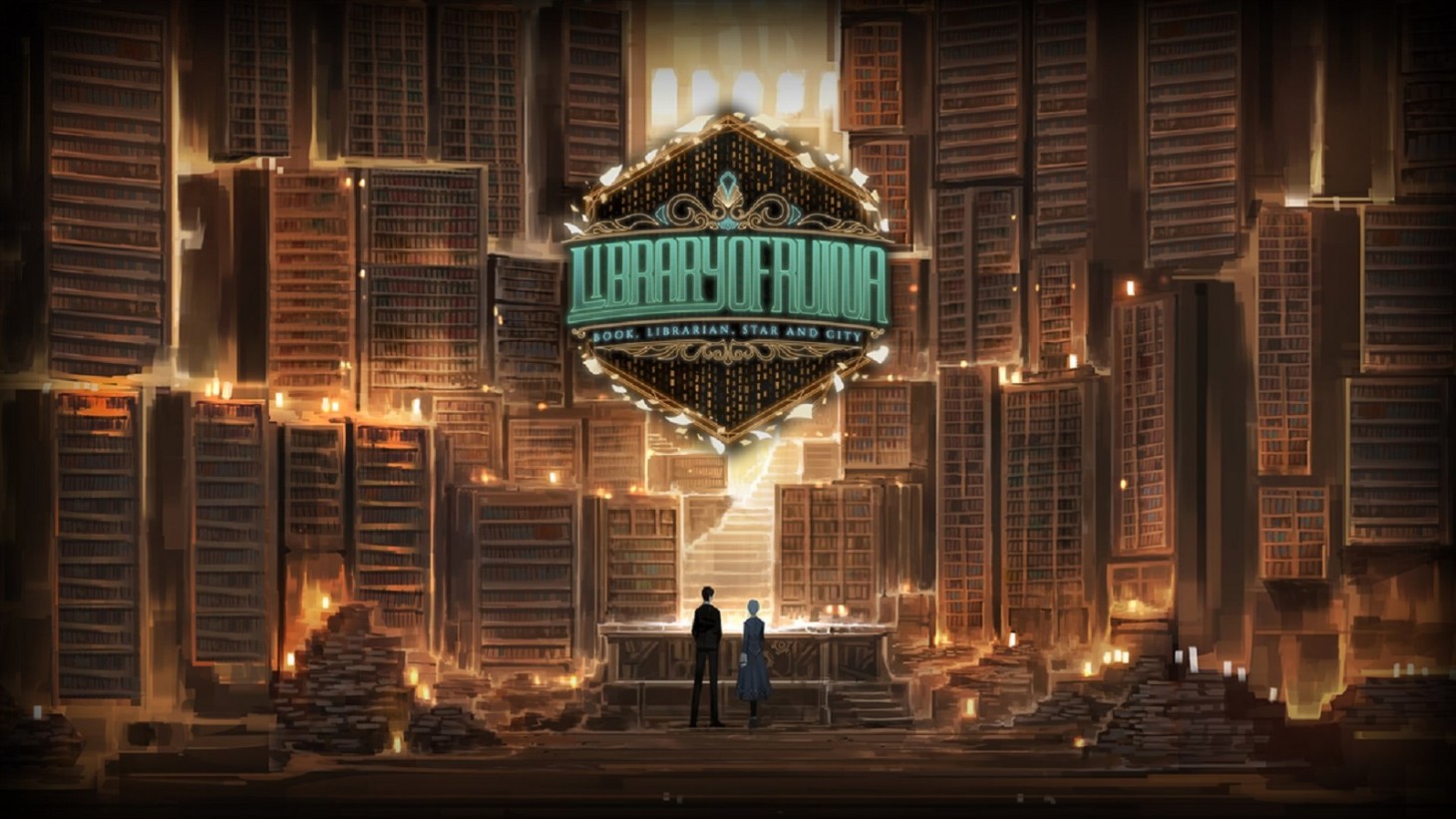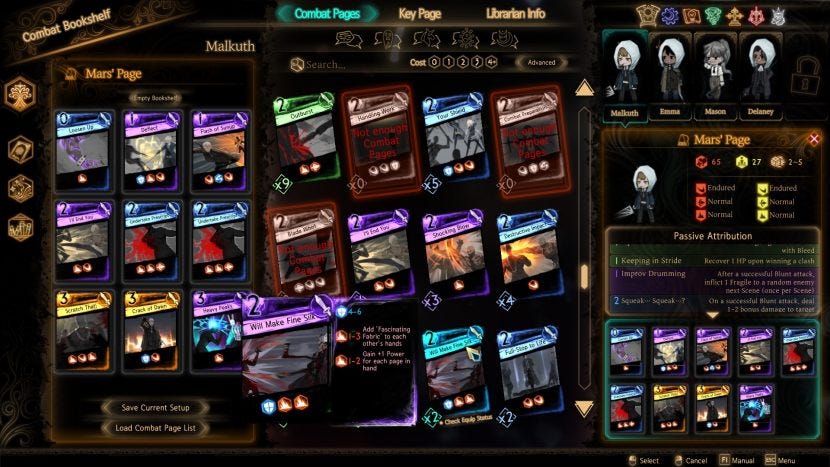
Library of Ruina is a single player deck-building RPG game created by Project MOON, an indie South Korean game studio. Library of Ruina is a direct sequel to Lobotomy Corporation, another game by Project MOON, but can be played as a stand alone as well.
Trailer: https://www.youtube.com/watch?v=KZipE3-BmjA&ab_channel=ProjectMoonOfficial
Story
The story follows a seemingly ordinary man, Roland, who finds himself stuck in The Library, a place created by an AI, Angela, to fulfill her wish. Without much of a choice, Roland helps out Angela with Library Receptions by fighting Guests and turning them into books when defeated. Throughout the game, the player is exposed to more of the strange dystopian world they live in as The Library is able to see the situations of the Guests before they enter The Library.
The story-telling of the game might not be for everyone due to the visual novel style of delivery. However, the depth and vastness of the world crafted by Project MOON can be felt and kept me intrigued throughout the game of what more there is to learn about this world they have crafted.
Gameplay
In Library of Ruina, the player plays as librarians battling the guests that enter the library. Librarians are equipped with a deck of cards that are used in a turn-based battle against guests pitting cards from these decks against each other. Guests defeated yield certain cards and abilities used by them which the player can then use in future battles.

With a plethora of card effects and abilities, there are multiple ways a player can customize their decks to suit their needs or desired playstyle.

Aesthetics
Library of Ruina’s use of static images in favour of a visual novel style of storytelling does not detract from the enjoyment of its story. The game is able to illustrate the grotesque nature of its world without lingering on filth or gore through the use of flashing images and sound effects.

The music that ramps up in tempo as battles reach their peak and unique songs for certain boss battles really help to set the mood for the combat. Despite the voice acting being in korean, I thoroughly enjoyed the depth and emotions of the voice acting.
Lens 1: Curiosity
Library of Ruina’s tells many short disjointed stories of different people in its world which helps the player understand the setting while also slowly building up a far grander plot. The slow reveal of key information about our main cast and the world around them kept me interested to find out more of the story. The fascinating world Library of Ruina has crafted has managed to keep my attention to want to find out more about it.
Lens 2: Endogenous Value
Defeating enemies in Library of Ruina rewards the player with the cards and abilities of the characters defeated. This allows the player to progressively get stronger while being excited to defeat certain powerful enemies, knowing they would be able to make use of the power after defeating them.

Lens 3: Problem Solving
Being a deck-builder game, crafting the optimal deck with synergies between cards and the abilities of a librarian was one of my favourite parts of the game which I spent hours upon hours on. Each time the story progressed, new cards were added to my arsenal and increased the possibilities of decks.
Outside of building card decks, the combat itself poses more problems to solve. With the many different mechanics in the game to consider, such as Ranged cards versus Melee cards and different buff effects to increase the power of cards, the optimal card to use in the optimal order is difficult to discern. Planning ahead for future turns and team-wide buffs that get triggered at specific intervals also makes makes the combat difficult enough to not feel stale and straightforward.
Lens 4: Challenge
One issue that arose from complexity of the problem solving of the game is how the game might be a tad too difficult at times, and losing due to this gives rise to frustrations due to the length of certain boss fights. With that said, I really enjoyed the challenge the game provides which subverted a lot of my expectations of the difficulty of card games and feel the difficulty is just right for the game.
The game gets progressively harder as new effects of the different enemies arise. Enemies do not simply get stronger with higher numbers. Instead, enemies typically gain new effects and abilities to increase their cards power or apply debuffs to the player’s Librarians. Learning to play around these effects keeps the game fresh and exciting.

In conclusion, Library of Ruina is a game I would recommend to anyone looking for a dark, deep story with turn-based strategic gameplay. Oh and also with plenty of time to spare. Yes, I have not completed the game even 100 hours in, but it is amazing.
